What’s included in this month’s Pulse:
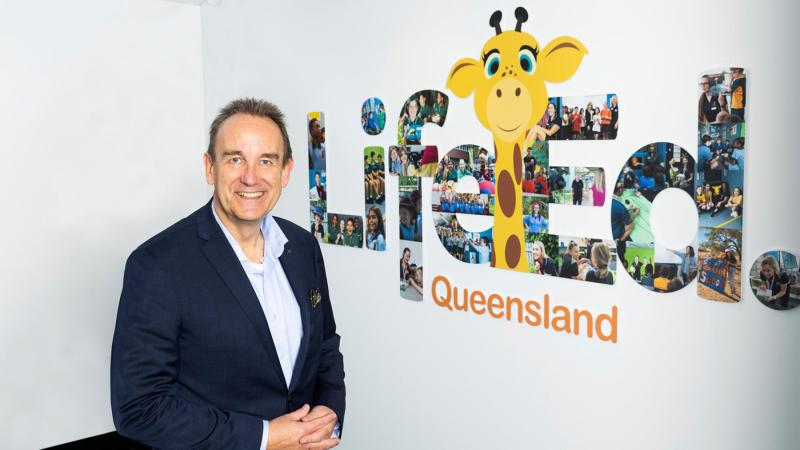
Message from Life Ed Queensland CEO Michael Fawsitt
As communities across Australia weigh up the best ways to tackle the vaping issue and its impact on young people, a Queensland Parliamentary Inquiry has been investigating the availability and prevalence of vaping devices and the health risks associated with e-cigarettes. Life Ed Queensland was invited to address the government’s recent inquiry public hearing where we put forward a strong case for greater investment in school-based education programs to address this rapidly growing problem.
At the start of Term 2, we surveyed 630 Queensland parents, almost 200 classroom teachers and 477 students in Years 5 and 6. We were inundated with comments alongside the survey questions, with many telling us they’re worried about vaping’s potential impact on young people’s health. Parents and teachers are also concerned about long-term addiction, the easy availability of vapes and the persuasive influence of social media marketing.
Our survey found:
Knowledge and education are a key part of the vaping solution. If children can understand the risks, they can make informed choices. We owe it to our children and the next generation to act fast. Here’s a short excerpt from the vaping public hearing.
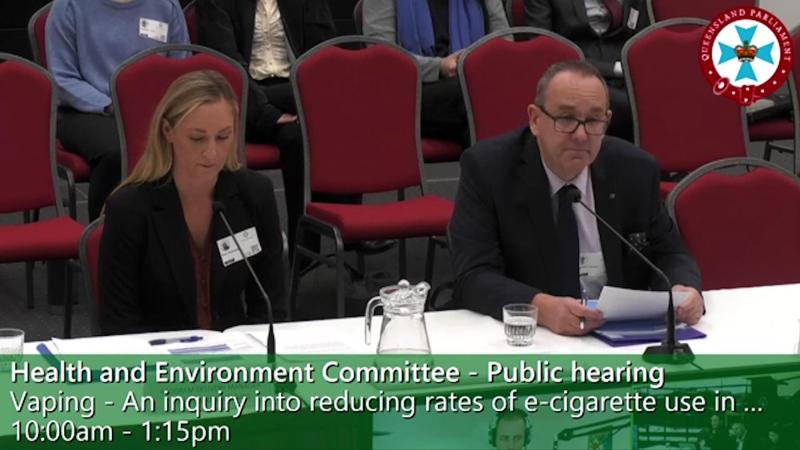
There’s nothing better than hearing feedback from families about the Life Ed program and its impact on children. When Sunshine Coast student Murphy, aged seven, took part in a Life Ed session with his Year 2 class this term, he couldn’t wait to share what he learned.
Murphy’s father Andrew was delighted with Life Ed’s focus on appropriate tech time and cybersafety.
“I have noticed that Murphy seems to be a lot more into his sport and physical activity since his Life Ed session,” Andrew said. “He’s also more conscious of not having tech or screen time before bed because it can make it hard to get to sleep and be at your best the following day.”
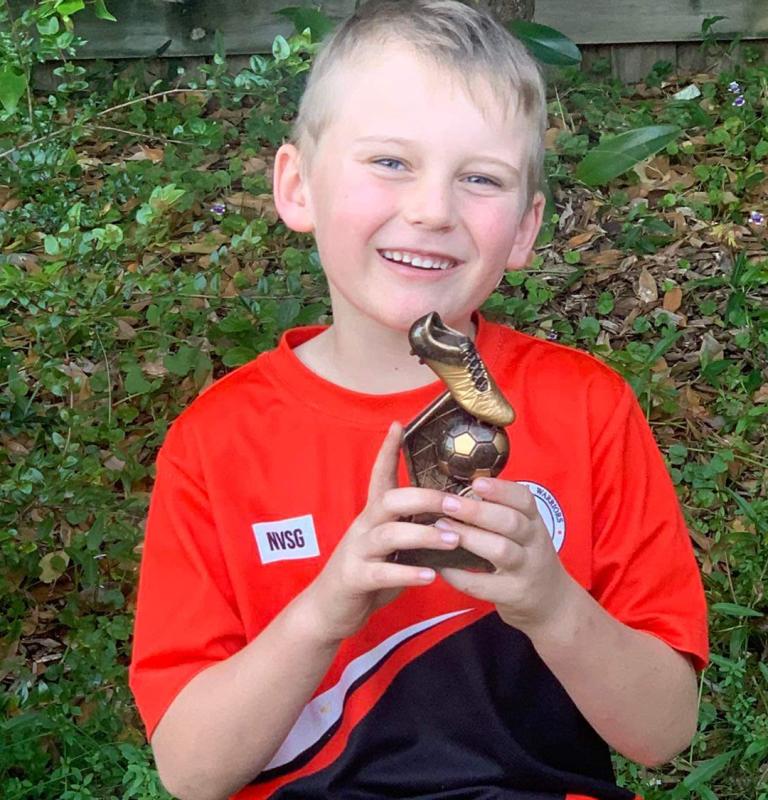
As a busy father of four, Andrew says it’s a challenge juggling the competing demands of work and raising children. He says the Life Ed program supports parents by providing fresh perspective, new skills, and up-to-date information.
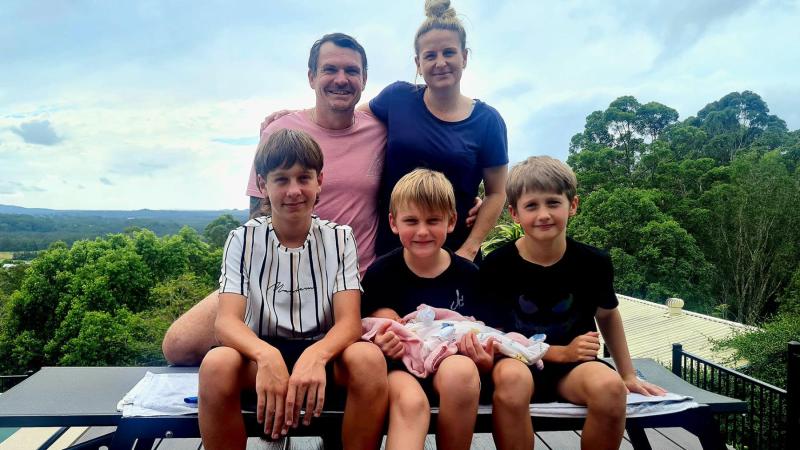
“Grooming is a concern for me with technology. I know that tech is inevitable, and kids need to have exposure to it, but I worry about that going forward for the safety of younger kids.
“Being able to create a routine with your child at home but also getting that third-party influence and from someone in their school setting, is great. When they are fully paying attention, to have an educator say, ‘Hey, this is something that is really good to adopt in your life.’ I think that’s very beneficial to parents.
“It’s great that Life Ed takes that proactive role in making sure kids have that progression in their behaviours and in their life outside of school.”
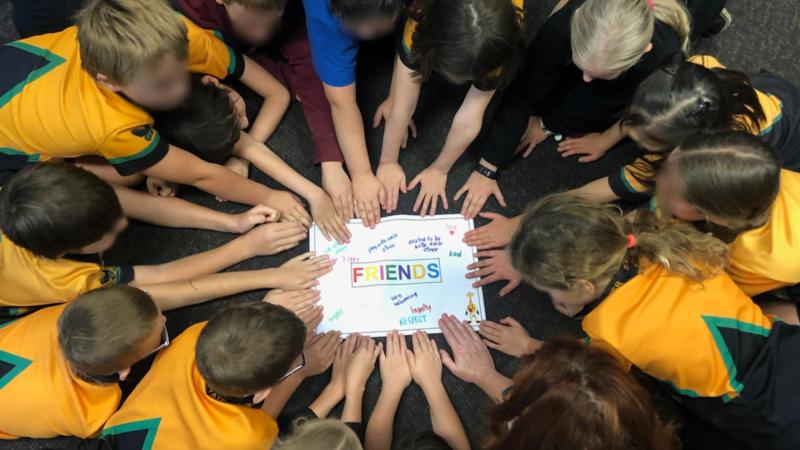
Since the COVID pandemic, many schools and mental health professionals have reported a rise in anxiety, bullying and friendship issues among young people. Coupled with increased time online, the need for education on respectful relationships and positive face-to-face connections has never been greater. Life Ed launched a new module Friends and Feelings, in Queensland schools this term, and the positive response from teachers has been overwhelming.
Tailored to Years 3-4 students, Friends and Feelings helps children:
Our educator team delivered 144 Friends and Feelings sessions to 2684 students across Queensland in Term 2, with teachers reporting that the contemporary content offers vital learning which supports problems they’re dealing with every day in the classroom and playground.
Here’s what some teachers had to say.
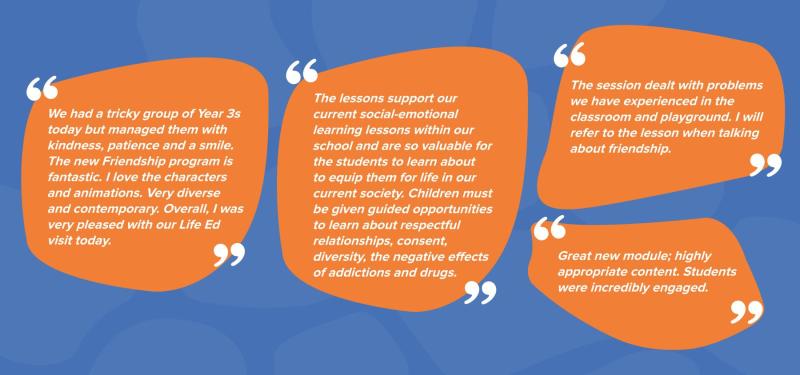
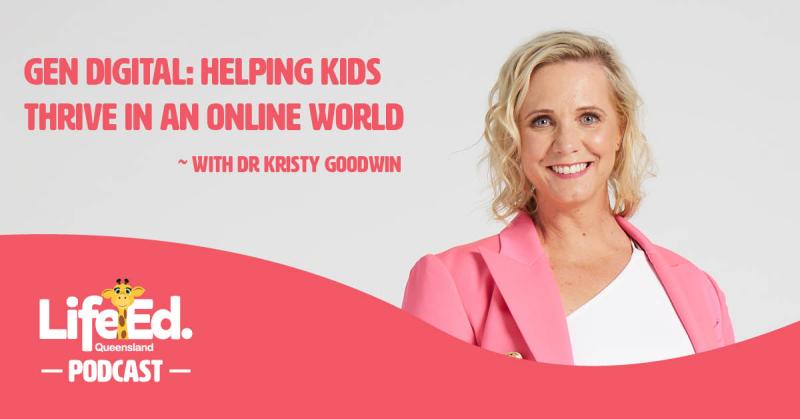
Digital wellbeing and managing screen time is an issue that concerns many parents. Technology is now a central part of children’s lives, and our lives too, but how much is too much? And how do you find a healthy balance of time online without the techno tantrums and conflict? In our latest Life Ed podcast, Dr Kristy Goodwin – an award-winning researcher, speaker and author on digital wellbeing and productivity – shares her tips on how to achieve digital wellbeing in the 21st century.
As a parent, Dr Kristy is pragmatic about the ubiquitous role of technology but says we can all avoid harm and burnout from technology by setting appropriate guard rails. That means powering off devices for periods of time, and making sure kids get enough sleep, exercise, face-to-face connection and time for creativity.
Dr Kristy shares the latest neuroscience which analyses screen time’s impact on young brains and explains how to achieve a more holistic balance without total bans and meltdowns.
If you could use some tips to enhance your family’s digital wellbeing, listen in to the Life Ed Queensland Podcast – Gen Digital: Helping kids thrive in an online world.
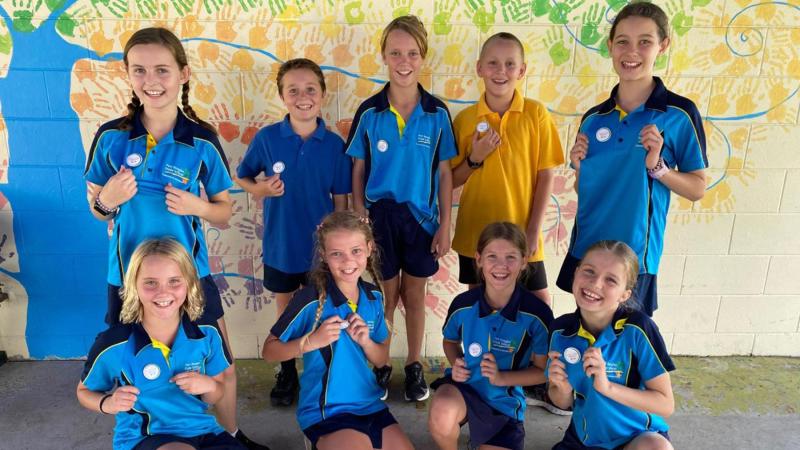
With one in four Queensland children between 2 and 17 living with obesity or overweight, Life Ed Queensland’s Healthy Eats program works with individual schools across the year to create healthier whole school food environments to boost vegetable and fruit consumption in young people.
Recognised with a SIMNA award for its social impact, Healthy Eats takes a place–based approach to support and resource schools in implementing targeted initiatives that lead to a healthy food environment for students, teachers and families.
When Port Douglas State School adopted the Healthy Eats program two years ago, the whole school was united in its vision and committed to achieving the 10 criteria necessary to achieve Healthy Eats accreditation.
The tenth Queensland school to achieve the certification, Port Douglas got to work, establishing a thriving vegetable and fruit garden and implementing classroom nutrition education delivered by Life Ed’s Healthy Eats community development officer. The school also launched healthy brain breaks and an active student leader group and reviewed their tuckshop menu to meet Smart Choices guidelines.
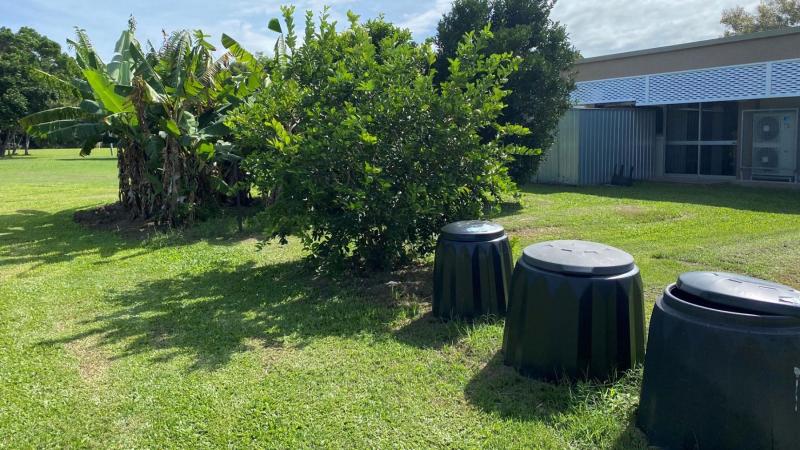
Jelena Edmonds, the Port Douglas State School Healthy Eats Coordinator, says the school is thrilled to earn program accreditation.
“The whole school has been working together to achieve this Healthy Eats milestone, and we are all so proud of each other,” Ms Edmonds said. “This achievement really demonstrates how committed everyone at Port Douglas State School is to the health and wellbeing of our community.”
The school is especially proud of their fantastic fruit and vegetable garden bursting with banana trees, eggplants, tomatoes and lettuce – a plentiful source of produce for the tuckshop and in-class cooking activities. The garden has also served as a focal point for students throughout the Healthy Eats project, supporting classroom learning and helping all year levels learn how to nurture the garden as a food source.
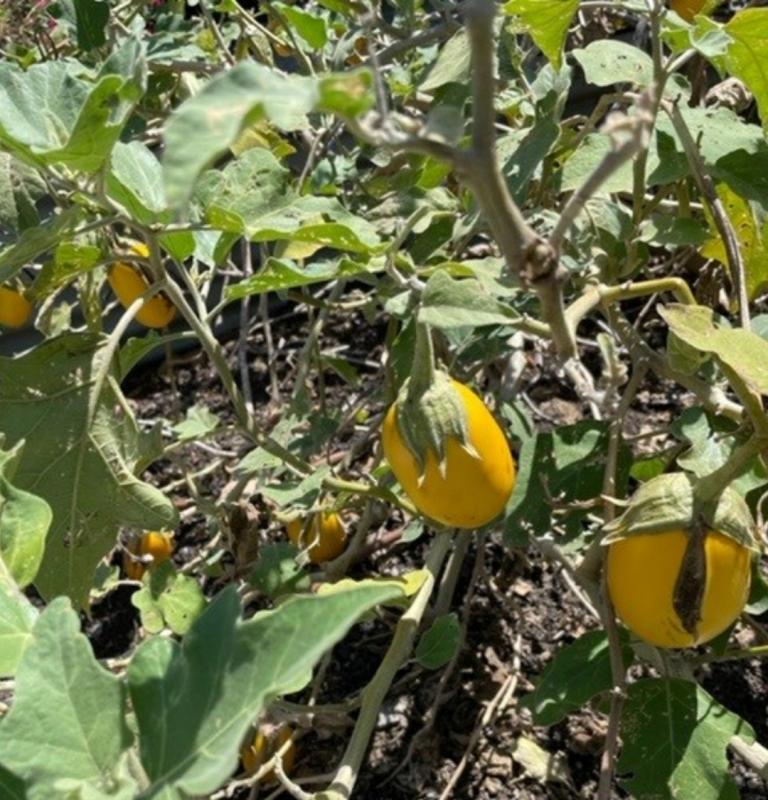
Another highlight saw Healthy Eats student leaders pitch in to lead a healthy lunchbox competition and implement ‘Health Hustles’ – a fun activity getting students to move their bodies and make healthy food and drink choices.
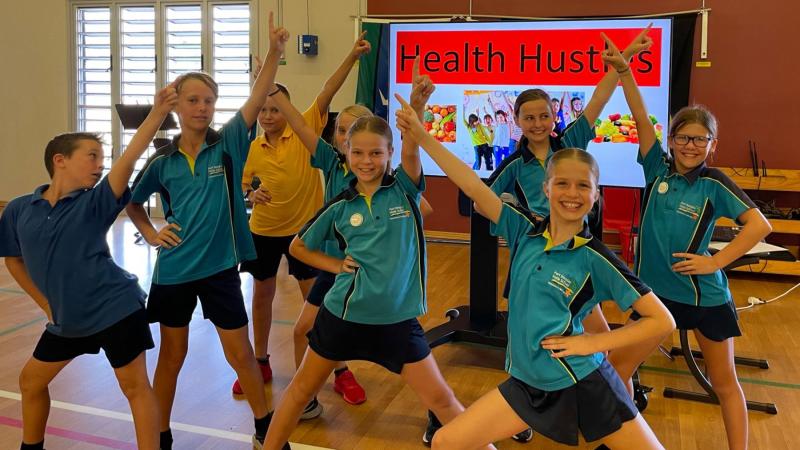
There were also school juice days, supported by the P and C, where students brought a cup to fill with nutritious fresh fruit and veggie juice. And with research showing many children are missing out on a healthy breakfast, the school breakfast club ensured students were getting their best start to the day.
An outstanding effort Port Douglas State School!